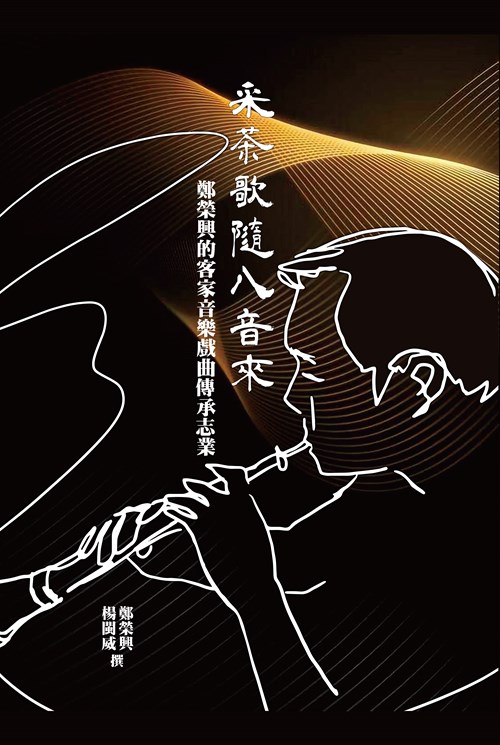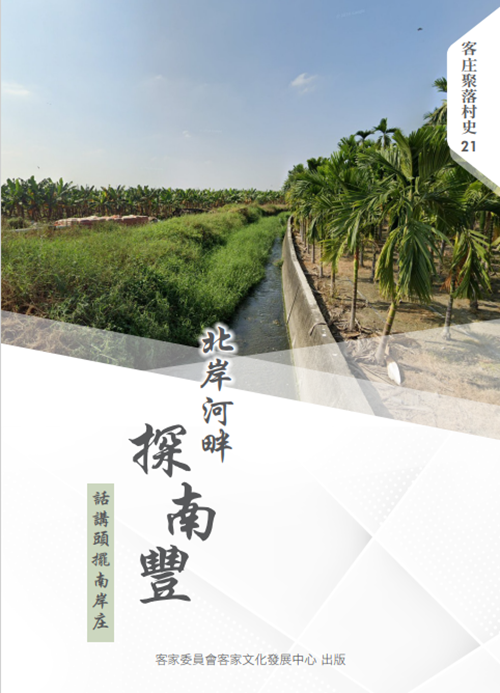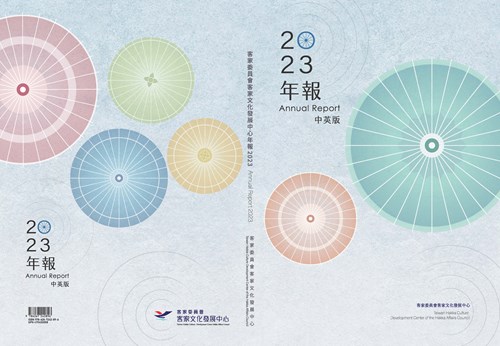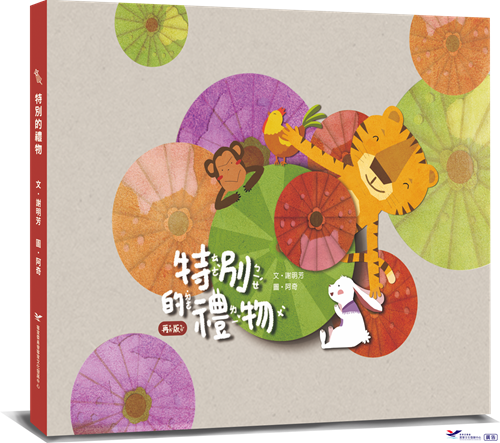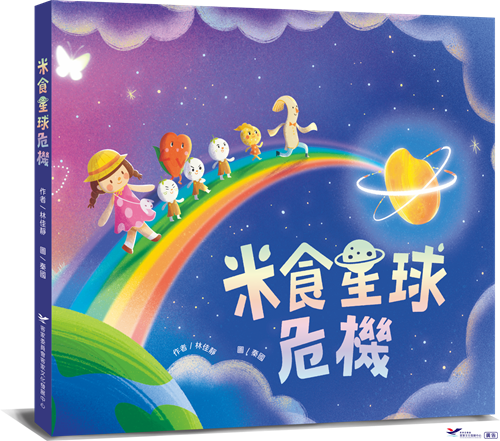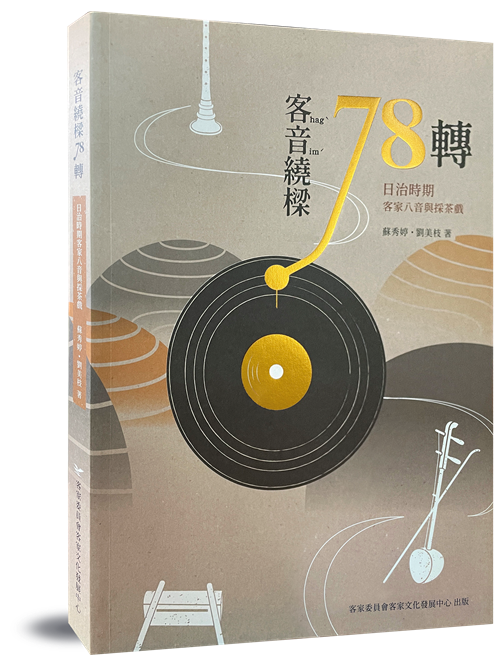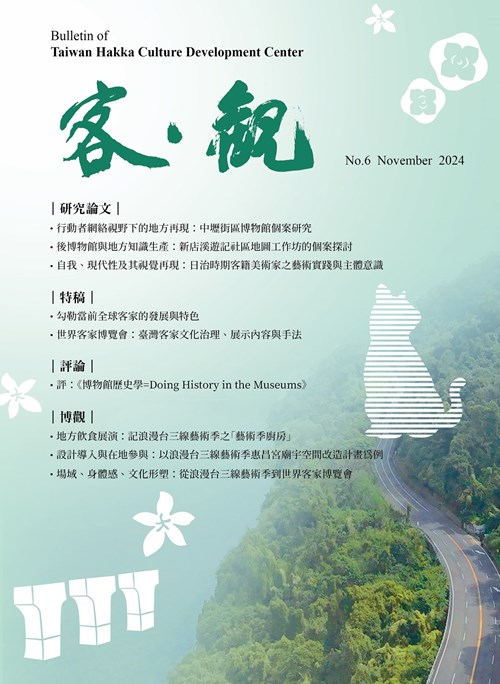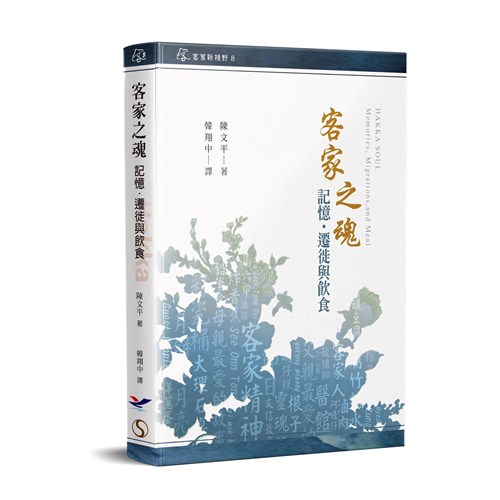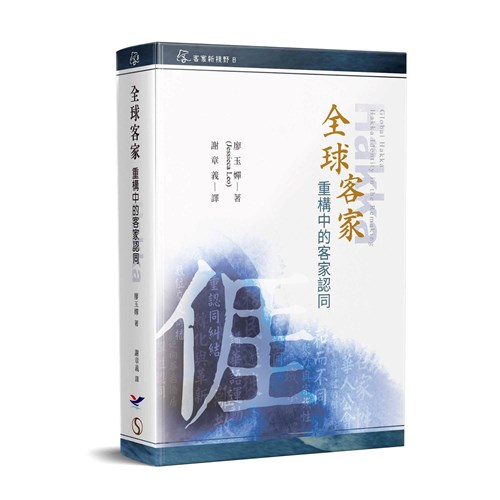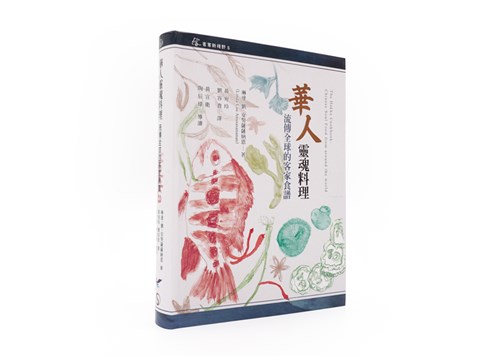
Research & Library
Publications

-
![]()
Tea-Picking Song to the Tune of Pa-yin: Cheng Rong-Hsing's Lifelong Dedication to Preserving Hakka Music and Traditional Opera
Publication Date:Cheng Jung-Hsing, a renowned practitioner of opera and music, has made indelible contributions to the preservation and promotion of traditional Hakka music. He developed performance conventions for Hakka opera, established teaching systems for Hakka theatrical arts, and secured a prominent place for Hakka traditional music and opera in Taiwan's performing arts history. From an early age, he inherited his family’s traditions, mastering the Hakka bayin (eight-tone music), Hakka opera, beiguan luantan opera, and Hakka ritual performance. He later pursued studies at the University of Paris in France, making him proficient in both Eastern and Western musical theories with profound knowledge and exceptional skill. Throughout his life, Cheng has dedicated himself to opera performance and education, embodying four roles: performer, creator, educator, and manager. He is recognized as a pioneering figure in traditional Hakka performing arts in Taiwan. This book weaves together Cheng Jung-Hsing’s life with his journey of passing on traditional Hakka performing arts to producing a vivid historical narrative of Hakka cultural performance and arts. Published by: Ho Chin-LiangPublisher: Hakka Culture Development Center, Hakka Affairs CouncilAuthors: Cheng Jung-Hsing, Yang Min-WeiPublication Date: February 2025, First EditionISBN: 978-626-7242-72-8 (Hardcover with Digital Audio-Visual CD)GPN: 1011400076Price: NT$400
-
![]()
Exploring Nanfeng by the Northern Riverside: The Story of the Former Nan’an Village
Publication Date:The settlement routes of the Liudui Hakka people can be divided into the northern, central, and southern lines. The southern line corresponds to present-day Xinpi and Jiadong townships, also known as the Left Heap (Zuodui) of Liudui. Nanfeng Village is one of the earlier settlements developed in Xinpi within the Left Heap. Geographically located south of the North Bank River, it was historically referred to as "Nan'an" (South Bank). Due to its homophonic resemblance to the Hakka term "Nan Yuan" (difficult to wish for), the village was renamed Nanfeng Village in 1971, symbolizing the hope for annual abundant harvests. The Hakka communities in Nanfeng Village had migrated there during different periods. In addition to the main village of Nan'an, the settlement includes Zhugaolun, Yongxingliao, and Afaliao. Although each hamlet was developed at different times, each possesses unique characteristics, and the residents all share a deep sense of gratitude and passion for this land. Guided by local elders and enthusiastic community members, the author conducted extensive field research, offering readers a glimpse into how the pioneering ancestors settled in the land, the history of the settlements' development and industrial transformations. The book also explores how local religious practices and the art of ritual offering preparation have been preserved and passed down through generations. This work captures precious stories of Nanfeng, a Hakka village with little documentation. Published by: Ho Chin-LiangPublisher: Hakka Culture Development Center, Hakka Affairs CouncilAuthor: Chuang Lan-YingGPN: 1011400046ISBN: 978-626-7242-70-4First Edition: February 2025Price: NT$250
-
![]()
Hakka Cultural Development Center Annual Report 2023(Chinese-English Edition)
Publication Date:The year 2023 marked a pivotal chapter for the Hakka Cultural Development Center, underscoring our unwavering dedication to cultivating deep local engagement while extending the reach of Hakka culture onto the global stage. In an era characterized by rapid cultural flows and increasing social diversity, the Center has remained steadfast in its mission—using the museum as a dynamic platform to connect communities with the land, broaden the dialogue between Hakka culture and the world, and advance our dual goals of fostering local participation and promoting international exchange. Issuer: Chin-Liang HoAdministrative Executives: Te-Chi Wu; Ching-Kuan Chen; Chi-Cheng Ma; Mei-Yen Chen; Sheng-Lai Chiang; Tzong-Chinq Lin;Chun-Yi Chiu; Liang-Chen ChuEditorial Team: Chun-Yi Chiu; Liang-Chen Chu; I-Chen Hung; Chia-Yu Li; Shih-Chao Tai; Che-Hsiang Lin;Hsien-Chun Chiu; Li-Fen Chiu; Kuo-Feng Hsu; Peng-Wei HuangExecutive Editor: Kuo-Feng Hsu; Peng-Wei HuangReviewer: Peng,Chin-ChingPublisher: Taiwan Hakka Culture Development Center of Hakka Affairs Council ISBN 978-626-7242-89-6 (PDF)GPN 4711400058
-
![]()
A Special Gift (Picture Book, Second Edition)
Publication Date:Story by: Hsieh Ming-fangIllustrations by: A-ChiPublication Dates: First Edition — August 2015 / Second Edition, First Printing — April 2025A new resident has moved into the forest — a tiger! But with its arrival come strange noises, trembling ground, and enormous shadows passing overhead. What is this mysterious newcomer up to, carrying all sorts of peculiar things into its house each day?A Special Gift is a craft-themed picture book inspired by the oil-paper umbrella, a traditional symbol deeply rooted in Hakka folk life and culture. Through its engaging story and delightful characters, the book introduces readers to the cultural meanings and artistry embodied in this iconic craft.To mark 10th anniversary of this work, this new edition includes phonetic annotations, a Hakka-language companion booklet, and interactive digital story versions available in Mandarin, Hakka, English, and Japanese, enriching the reading experience and promoting multilingual learning and cultural accessibility.
-
![]()
Crisis on the Rice Planet (Picture Book)
Publication Date:Story by: Lin Jia-jingIllustrations by: Qin-guoPublication Date: January 2025Every year, a rainbow appears in the sky during the Hakka Rice Festival — a colorful bridge made of ban (粄, traditional Hakka rice cakes). The bridge made of ban links the Rice Planet and Earth in friendship. But one day, Ai-ban (艾粄, herbal rice cake) begins to vanish at an alarming rate! Can little An save the world and restore balance before the bridge disappears forever?Crisis on the Rice Planet is a cultural picture book that takes readers on a delightful adventure through a world made of Hakka rice foods. As the young protagonist little An and the Rice Sprites work together to solve the mystery behind the vanishing ban bridge, the story invites readers to discover the vibrant variety of Hakka rice-based delicacies and the deep connection between food, culture, and the environment.An extended reading section further explores the rich traditions and cultural meanings of ban in Hakka communities, guiding readers to appreciate both the artistry of rice foods and the importance of ecological balance in sustaining this culinary heritage.
-
![]()
Echoes of Hakka Sounds: 78 RPM Recordings of Hakka Bayin and Tea-Picking Opera during the Japanese Colonial Period
Publication Date:Authors: Su Siou-ting & Liu Mei-chiPublication Date: December 2024At the turn of the 20th century, the arrival of the phonograph in Taiwan heralded the birth of the island’s recording industry. Beginning with Hakka performer He A-wen and others who traveled to Japan to record, numerous Hakka Bayin (traditional instrumental ensembles) and Tea-Picking Opera artists later joined in, leaving behind a precious auditory record of their era.This book offers the most comprehensive catalog to date of 78 RPM Hakka music recordings from the Japanese colonial period, meticulously compiled from archives and metadata across institutions. It also provides an in-depth analysis of Hakka Bayin and Tea-Picking Opera, presenting well-structured, richly documented discussions supported by photographs, label images, and detailed musical commentary. Together, these materials guide readers into the vibrant soundscape of Hakka music from the 1910s to the 1940s.The volume is divided into three parts:1. Compilation of Hakka Music Recordings from the Japanese Colonial Period — a systematic cataloging of records labeled as “Hakka Opera,” “Hakka Bayin,” “Cantonese Tea Songs,” and “Hakka Language” in Taiwan’s archival metadata, cross-referenced and verified through original label data and surviving audio files.2. Analytical Study of Hakka Bayin Recordings from the Period — an examination of label texts, repertoire, and performers, revealing stylistic and cultural nuances within instrumental traditions.3. Analytical Study of Hakka Tea-Picking Opera Recordings from the Period— exploring the repertoire, dramatic structure, and artists behind these recordings, situating them within the broader history of Taiwan’s recording industry under Japanese rule.Through sophisticated reconstruction and scholarly interpretation, Echoes of Hakka Sounds revives the historical voices and cultural vitality of early Hakka music, illuminating an era when 78 RPM records carried the rhythms and resonances of Taiwan’s living traditions.
-
![]()
The Bulletin of Taiwan Hakka Culture Development Center (Issue No. 6)
Publication Date:Chief Editor: Lin Pen-hsuanPublication Date: November 2024|Research Articles|• Representation of Place through the Lens of Actor-Network Theory: A Case Study of the Zhongli Street MuseumBy Shen Wei-hung• Post-Museum and the Production of Local Knowledge: A Case Study of the Xindian River Travels Mapping WorkshopBy Tseng Hsiang-yu• Self, Modernity, and Visual Representation: The Artistic Practice and Subjective Consciousness of Hakka Artists during the Japanese Colonial PeriodBy Chang Chen-lin|Special Articles|• Outlining the Development and Characteristics of the Global Hakka Community TodayBy Hsiao Hsin-huang• World Hakka Exposition: Cultural Governance, Exhibition Narratives, and Curatorial Approaches in Taiwan’s Hakka Representation By Hsiao Hsin-huang, Wang Sung-shan, Huang Jan-yen, Yao Ming-li, Chang Han-pi, Lin Pen-hsuan, Yu Lung-tung, Chang Chen-lin, Chang Wei-an, Tsai Fen-fang, Lim Khay-Thoing, Lee Leong-sze, and Liu Yu-shan|Reviews|• Review of Doing History in MuseumsBy Fang Chun-wei|Hakka Forum|• Performing Local Cuisine: The “Festival Kitchen” at the Romantic Route 3 Arts FestivalBy Chen Pei-xin• Design Intervention and Local Participation: The Hui-chang Temple Renovation Project at the Romantic Route 3 Arts FestivalBy Chang Wei-chen, Chen Ya-jou, and Huang Jan-yen• Field, Embodiment, and Cultural Formation: From the Romantic Route 3 Arts Festival to the World Hakka ExpositionBy Huang Sing-da
-
![]()
Hakka Soul: Memories, Migrations, and Meals
Publication Date:Author: Chin Woon PingTranslator: Han Hsiang-chungPublication Date: First Edition, June 2024This book is a work of autobiographical literature, distinguished by its lyrical form of micro-essay narration. Told in a gentle, reflective tone, each vignette takes its title from a dish or flavor, using food as the narrative thread that binds together fragments of memory and emotion.The author’s story unfolds from the personal to the familial, tracing her migrant journey and cultural inheritance—born and raised in Malaysia, influenced by her “New Hakka” father, and later immigrating to the United States, where she achieved distinction in English and American literature. The narrative flows freely without strict chronological boundaries, blending lived experience with remembrance and imagination.Through its delicate language and sensory imagery, Hakka Soul captures how taste, memory, and migration intertwine to form the emotional landscape of identity. It is both a tribute to Hakka heritage and an intimate meditation on belonging, displacement, and the enduring warmth of home carried through food.
-
![]()
Global Hakka: Hakka Identity in the Remaking (Complex Chinese Edition)
Publication Date:Author: Jessieca LeoTranslator: Hsieh Chang-yiPublication Date: First Edition, June 2024This book situates the question of Hakka identity within a global context, examining how globalization, migration, and ethnicity intersect to shape the contemporary Hakka experience. While traditional Hakka studies have often focused on localized communities and historical lineages, this work breaks new ground by adopting a transnational perspective, viewing Hakka identity as a dynamic and evolving construct.Against the backdrop of globalization, transnationalism, and deterritorialization, the author reconsiders earlier frameworks of Hakka migration and identity, identifying their limitations and proposing the concept of the “Global Hakka.” This concept captures how Hakka identity is continuously reconstructed amid frequent cross-border movements and cultural exchanges in the contemporary world.Focusing on the first decade of the 21st century, the study centers on the Beruas Global Hakka (BGH) of, Malaysia, tracing the global dispersal of its diaspora community. Drawing upon the author’s own personal experiences as a member of this community, the research merges autobiography with ethnography, embodying the fluidity and multiplicity of Hakka identity itself.Through its blend of theoretical insight and lived narrative, Global Hakka: Hakka Identity in the Remaking illuminates how memory, migration, and belonging intertwine to continually redefine what it means to be Hakka in a global age.
-
![]()
Chinese Soul Food —The Hakka Cookbook from around the World (Complex Chinese Edition)
Publication Date:Author: Linda Lau AnusasanananTranslators: Huang Wan-ling and Liu Jung-kueiPreface by: Huang Shiun-wey and Tao Chen-weiPublication Date: First Edition, May 2024Originally published in English as The Hakka Cookbook: Chinese Soul Food from around the World, this book chronicles author Linda Lau Anusasananan’s journey to trace Hakka communities across the globe. Through her interviews, she depicted Hakka families in Taiwan, the United States, Peru, Malaysia, Singapore, Jamaica, Trinidad, India, and Canada, collecting their stories, recipes, and memories of home.The result is both a culinary travelogue and an ethnographic record, capturing how Hakka people have preserved and reinvented their food traditions in diverse cultural landscapes. Dedicated to those who, like the author, seek to understand Hakka history and food culture, this Chinese edition makes the stories and flavors of Hakka cuisine accessible to an even wider global readership—connecting Hakka communities around the world through the shared language of food.
